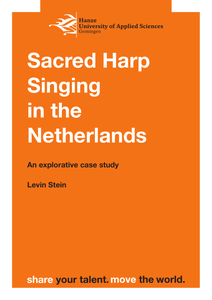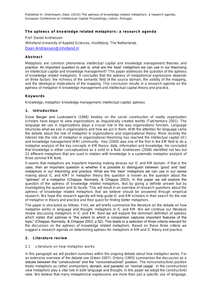This paper explores the intersection of Human-Comput- er Integration (HInt) and Critical Disability Studies (CDS) to explore how a posthumanistic epistemology in design can produce knowledge and know-how for the application do- mains of Health and Well-being. To use disability as a catalyst for innovation, a rethinking in the philosophy of sciences is necessary to establish knowledge production that emerges from new fluid politics that operate in ‘composition’ instead of ‘organization’. By placing an emphasis on nomadic practic- es that move beyond fixed borders, the encounters between Disability Studies or Human-Computer Integration can pro- duce situated, embodied and contingent design knowledge that study deviant and complex embodiment, and the kinds of alterations of human characteristics and abilities through technology. The first section of this paper explores the re- thinking in the philosophy of sciences. The second section ar- gues for a posthumanistic epistemology in design, which can be seen as the perfect way to produce situated, embodied and contingent design knowledge on the intersection of HInt and CDS. The final section of this paper highlights the poten- tial for the disciplines of Somatechnics and Soma Design to engage in each other’s body of knowledge to produce trans- formative knowledge through a shared focus on deviant em- bodiment and disability. The takeaway message of this paper is that the intersection of HInt and CDS potentially leads to new – otherwise overlooked - insights on the human-technol- ogy relationship, and therefore can take part in the historical strive for man-machine symbiosis. The posthumanist episte- mology allows for alternative ways of thinking that move be- yond the current Humanist perspective, and builds on a plu- ral, relational and expansive foundation for the development of design practices that catalyze innovation in the application domains of Health and Well-being.
DOCUMENT

Dit is de derde versie van het kaderdocument. Eerdere versies verschenen in 2010 en 2011. Het document is tot stand gekomen op verzoek van de Vakvereniging van Ervaringswerkers (VVvE) en de Landelijke Denktank Opleidingen Overleg Ervaringsdeskundigheid (LDOO). In de LDOO zijn vrijwel alle partijen betrokken die zich sterk maken voor de ontwikkeling van ervarings-deskundigheid. Het betreft hier cliënteninitiatieven als HEE, opleidingen (ROC’s en Hogescholen), alsmede kenniscentra en onderzoeksinstituten (IGPB, Kenniscentrum Ervaringskennis en Zelfhulp, lectoraten van hogescholen, Trimbos instituut). Ervaringsdeskundigheid is populair. Met name binnen de GGz en de Verslavingszorg worden steeds meer ervaringswerkers in dienst genomen. Dit doet een toenemend beroep op opleidingsmogelijkheden, zowel op MBO als op HBO niveau, in reguliere opleidingen of in korte trajecten voor deskundigheidsbevordering en traininng. In de loop van de bijeenkomsten van het LDOO zijn deze ontwikkelingen besproken. Er werd gezocht naar de kenmerkende elementen van ervaringsdeskundigheid en naar de bijbehorende competenties. In de loop van deze zoektocht bleek een toenemende behoefte aan een duidelijk begrippenkader. Een helder begrippenkader vergemakkelijkt immers het ontwikkelen van beleid rond zowel ervaringsdeskundigheid zelf, als ook rond opleidingen, onderzoek en inbedding in de praktijk.
DOCUMENT

Moral food lab: Transforming the food system with crowd-sourced ethics
LINK
This article discusses the viability of a feminist constructivist approach of knowledge through the careful reading of the work of the feminist scholar and historian of science and technology, Donna Haraway. Haraway proposes an interpretation of objectivity in terms of "situated knowledges". Both the subject and the object of knowledge are endowed with the status of material-semiotic actors. By blurring the epistemological boundary between subject and object, Haraway's narratives about scientific discourse become populated with hybrid subjects/objects. The author argues that the ethics of these hybrid subjects consists of an uneasy mixture of a Nietzschean and a socialist-Christian ethic. The article concludes by setting out why Haraway's project constitutes an interesting effort to fuse postmodern insights and feminist commitments.
DOCUMENT

This study employed an exploratory approach by applying practice theory to insights gathered throughthe triangulation of interview, document analysis and observation methodologies to 1) map the SacredHarp Singing practice scope and give a nuanced picture of its performativity in the Netherlands, witha particular focus on the Sacred Harp group from Amsterdam comparing it to one from Bremen and 2)investigate the underlying rise of transformative emotions, the social, secular, and religious meanings, andthe sense of belonging to an international community. The findings suggest that Sacred Harp enthusiastsin the region are keen on retaining the legacies of the traditional singers by establishing similar singingatmospheres and by following the practice’s historical customs and practices, including the communalsinging in the “hollow square” and the affinity towards democratic participation. The findings alsoindicate that while there is a noticeable level of commitment and excitement among local enthusiasts,the growth of the groups’ memberships is hampered by a lack of interest by the general public, possiblyin connection with insufficient strategies for publicizing the practice. Therefore, the existence of thesebarriers could imply that the practice would probably grow at a relatively slow pace in the region.
DOCUMENT

This article investigates the transformative impacts of regular nature-based adventure activity engagement and its long-lasting effects on eudaimonic well-being (EWB), specifically mental health. Although extant research highlights a wide range of well-being and mental health benefits from participation in such pursuits, less is known about experienced outdoor adventure enthusiasts for whom adventure is a fundamental and transformational part of their lives. The study builds on an existing conceptual framework that synthesizes pertinent research concepts on nature-based activity engagement and subjective well-being benefits. It presents key findings from 40 semi-structured in-depth online interviews with respondents from the UK, Germany, and Serbia. Interview data were collated and analyzed using a thematic framework approach. The findings highlight the importance of outdoor adventure activity engagement for respondents’ mental and physical health and long-term well-being. Regular activity participation can be transformational in reducing feelings of ill-being and enhancing EWB. It can improve self-efficacy and identity development and promote the fulfilment of psychological needs, facilitated by key transformational catalyzers. Continually entering a liminal state, experiencing emotions, and overcoming challenges and risks during engagement are crucial to “successful” long-lasting transformation. Further research should continue to explore adventure’s transformational and EWB benefits to develop long-term data.
DOCUMENT

Metaphors are common phenomena intellectual capital and knowledge management theories and practice. An important question to ask is: what are the ‗best‘ metaphors we can use in our theorizing on intellectual capital and knowledge management? This paper addresses the question of the aptness of knowledge related metaphors. It concludes that the aptness of metaphorical expressions depends on three factors: the richness of the semantic field of the source domain, the validity of the mapping, and the ideological implications of the mapping. This conclusion results in a research agenda on the aptness of metaphor in knowledge management and intellectual capital theory and practice.
DOCUMENT

The international classroom is presumably a far more effective learning environment for the acquisition of intercultural competence when students receive adequate training to make the most of their intercultural encounters. This paper provides a summary of the intercultural training taught to first-year students of an international programme in The Hague University of Applied Sciences. The purpose of the paper is to investigate how the students respond to this intercultural training as well as what signs of intercultural awareness they show after completing the course. The findings were obtained via qualitative methods such as semi-structured interviews, observations and student homework assignments. Overall, students evaluate the training positively. Furthermore, students show some awareness of the necessary ingredients for effective intercultural communication in the international classroom as well as of the challenging nature of this communication due to cultural diversity. Finally, this paper provides recommendations from the facilitators on stimulating intercultural learning in the international classroom.
DOCUMENT

Using fMRI, cerebral activations were studied in 24 classically-trained keyboard performers and 12 musically unskilled control subjects. Two groups of musicians were recruited: improvising (n=12) and score-dependent (non-improvising) musicians (n=12). While listening to both familiar and unfamiliar music, subjects either (covertly) appraised the presented music performance or imagined they were playing the music themselves. We hypothesized that improvising musicians would exhibit enhanced efficiency of audiomotor transformation reflected by stronger ventral premotor activation. Statistical Parametric Mapping revealed that, while virtually 'playing along' with the music, improvising musicians exhibited activation of a right-hemisphere distribution of cerebral areas including posterior-superior parietal and dorsal premotor cortex. Involvement of these right-hemisphere dorsal stream areas suggests that improvising musicians recruited an amodal spatial processing system subserving pitch-to-space transformations to facilitate their virtual motor performance. Score-dependent musicians recruited a primarily left-hemisphere pattern of motor areas together with the posterior part of the right superior temporal sulcus, suggesting a relationship between aural discrimination and symbolic representation. Activations in bilateral auditory cortex were significantly larger for improvising musicians than for score-dependent musicians, suggesting enhanced top-down effects on aural perception. Our results suggest that learning to play a music instrument primarily from notation predisposes musicians toward aural identification and discrimination, while learning by improvisation involves audio-spatial-motor transformations, not only during performance, but also perception.
DOCUMENT
